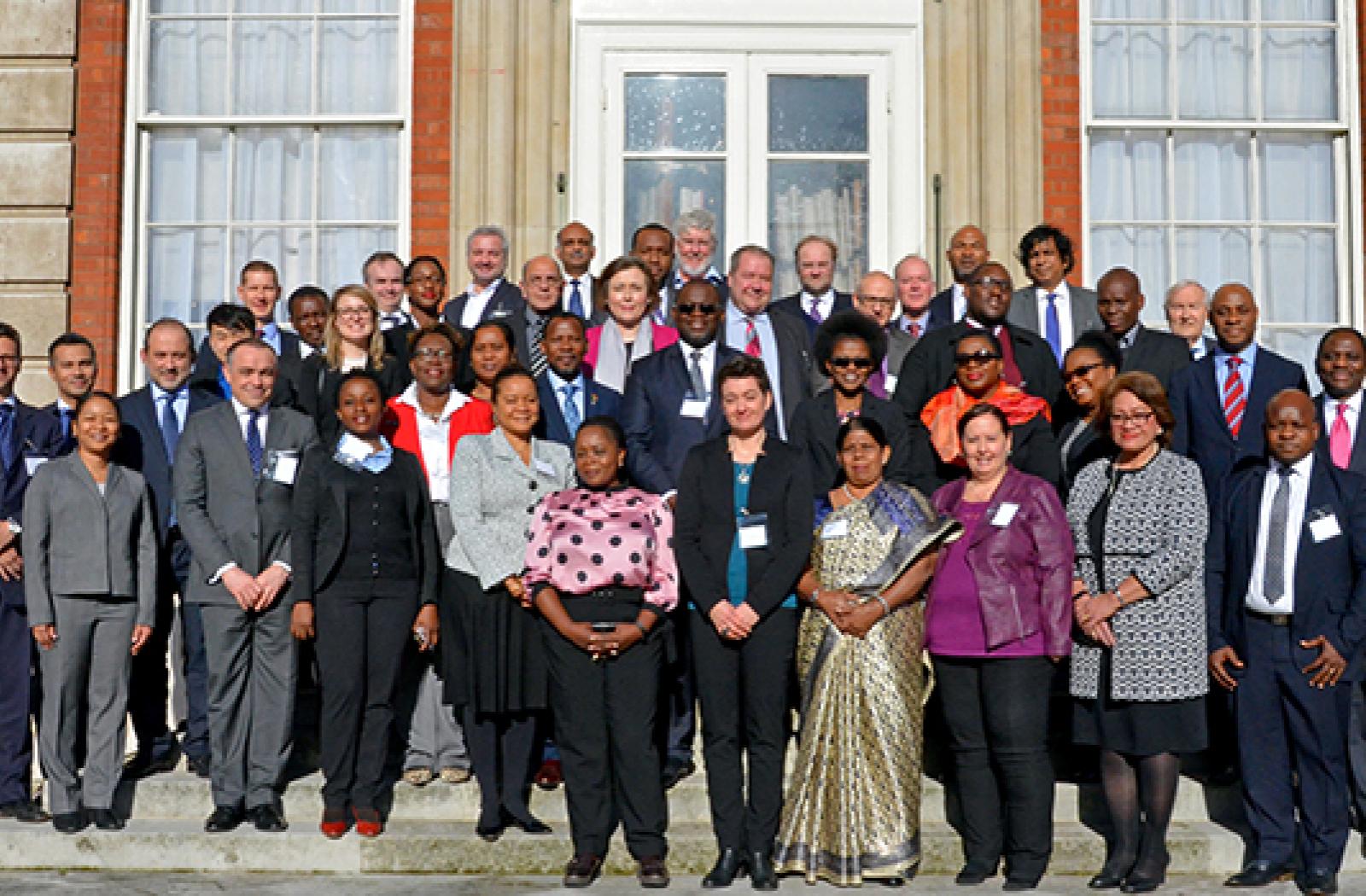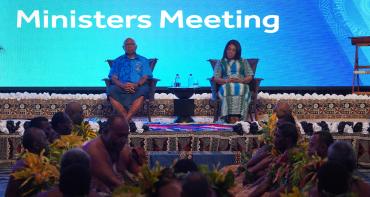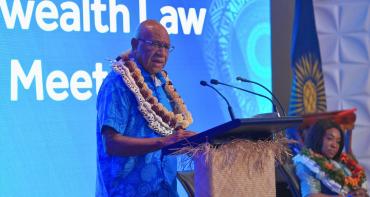Dedicated bodies that will help lawmakers tackle cross-border crime across the Commonwealth have been proposed at a meeting in London.

Dedicated bodies that will help lawmakers tackle cross-border crime across the Commonwealth have been proposed at a meeting in London.
The Heads of Central Authorities in the Commonwealth met at Marlborough House for a two-day conference earlier this month, and addressed the barriers to effective cooperation in criminal matters.
Experts also shared solutions and best practices, and suggested ways to enhance cooperation across the Commonwealth.
Member countries were encouraged to establish a dedicated central authority, which would be part of a cross-Commonwealth forum that would allow governments to communicate to resolve criminal matters.
The meeting also saw representatives of the Commonwealth Network of Contact Persons take part for the first time. More than 70 delegates from across the Commonwealth, observer countries of the USA and Switzerland, in addition to the United Nations, discussed cooperation relating to issues such as cyber-crime, serious trans-border fraud and laundering of proceeds of corruption.
Charles Mhango, Attorney General from the Republic of Malawi, said, “From what I have learned at the Commonwealth Secretariat it’s very important that when I go back to Malawi I impress on the authorities the need to create a dedicated department or the central authority that could be dealing with these issues on a day-to-day basis.
“I think if the Commonwealth could help us establish a dedicated central office in the Republic of Malawi and that will be very helpful for the country because the dangers of the use of information technology are very real, and Malawi can easily be created as a safe haven for issues of crime and money laundering if we don’t deal with those things holistically.”
Paula Llewellyn QC, Director of Public Prosecutions in Jamaica, said, “At the heart of the meeting of central authorities was the importance of cooperation, cooperation, cooperation. Criminals worldwide don’t have any borders – they are constantly finding new ways to cooperate and collaborate.
“Without cooperation, united we stand but divided we will fall, so there is no room for turf tension between law enforcement agencies. The Commonwealth is a great facilitator and I hope the Secretariat will continue to build an atmosphere which will encourage us all to know that ultimately with the right will we can count on each other.”
Dan Souter, founder and director of iJust International Justice Consultants, spoke about the increasing challenges of cyber-crime, and how existing Commonwealth platforms help to combat them.
Dan Souter
He said, “The Commonwealth Network of Contact Persons is an incredible initiative because mutual legal assistance relies upon that personal contact and having a secure messaging service ensures that we transport a crime that happens so quickly. There’s a hack a minute, for example. We saw the WannaCry ransomware attack in 2017 where 200,000 computers were infected in 150 countries. Through the secure messaging platform the players and contact persons can communicate to make sure that we are more proactive than reactive and we ensure that those who are breaking justice can come to justice.
The Head of the UK Central Authority, Philomena Creffield, spoke about the need to strengthen existing frameworks to enable countries to tackle a diverse range of issues.
Ms Creffield said, “By strengthening central authorities throughout the Commonwealth what we’re really doing is strengthening our ability to fight crime, specifically terrorism and corruption, which faces every country. So together, through these conferences and bilateral meetings, and communicating more than we may have done in the past we’ll see a safer world.”
Katalaina Sapolu, director of the Commonwealth Secretariat’s governance and peace directorate, said, “Cross-border crimes are increasingly a threat in an ever-smaller world, with information technology and its enabled services presenting complex challenges every day. It is a one world application operating on real time basis in multiple jurisdictions. This and others forms of globalisation have challenged us for an enhanced and innovative way of cooperation. Traditional forms of cooperation are slightly unsuitable in the contemporary world of advanced communication.
Project coordinator and legal adviser in the Secretariat’s Rule of Law section, Shadrach Haruna, outlined the objectives of the meeting. He highlighted the greater need “to innovate and sharpen our procedural cooperation by leveraging the values and strength of the Commonwealth given the phenomenal rise in trans-border offending in the recent times to ensure that there is no impunity and safe haven for criminals”.



